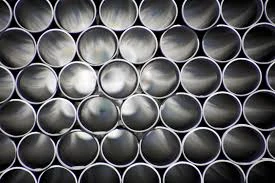
-
 Afrikaans
Afrikaans -
 Albanian
Albanian -
 Amharic
Amharic -
 Arabic
Arabic -
 Armenian
Armenian -
 Azerbaijani
Azerbaijani -
 Basque
Basque -
 Belarusian
Belarusian -
 Bengali
Bengali -
 Bosnian
Bosnian -
 Bulgarian
Bulgarian -
 Catalan
Catalan -
 Cebuano
Cebuano -
 China
China -
 China (Taiwan)
China (Taiwan) -
 Corsican
Corsican -
 Croatian
Croatian -
 Czech
Czech -
 Danish
Danish -
 Dutch
Dutch -
 English
English -
 Esperanto
Esperanto -
 Estonian
Estonian -
 Finnish
Finnish -
 French
French -
 Frisian
Frisian -
 Galician
Galician -
 Georgian
Georgian -
 German
German -
 Greek
Greek -
 Gujarati
Gujarati -
 Haitian Creole
Haitian Creole -
 hausa
hausa -
 hawaiian
hawaiian -
 Hebrew
Hebrew -
 Hindi
Hindi -
 Miao
Miao -
 Hungarian
Hungarian -
 Icelandic
Icelandic -
 igbo
igbo -
 Indonesian
Indonesian -
 irish
irish -
 Italian
Italian -
 Japanese
Japanese -
 Javanese
Javanese -
 Kannada
Kannada -
 kazakh
kazakh -
 Khmer
Khmer -
 Rwandese
Rwandese -
 Korean
Korean -
 Kurdish
Kurdish -
 Kyrgyz
Kyrgyz -
 Lao
Lao -
 Latin
Latin -
 Latvian
Latvian -
 Lithuanian
Lithuanian -
 Luxembourgish
Luxembourgish -
 Macedonian
Macedonian -
 Malgashi
Malgashi -
 Malay
Malay -
 Malayalam
Malayalam -
 Maltese
Maltese -
 Maori
Maori -
 Marathi
Marathi -
 Mongolian
Mongolian -
 Myanmar
Myanmar -
 Nepali
Nepali -
 Norwegian
Norwegian -
 Norwegian
Norwegian -
 Occitan
Occitan -
 Pashto
Pashto -
 Persian
Persian -
 Polish
Polish -
 Portuguese
Portuguese -
 Punjabi
Punjabi -
 Romanian
Romanian -
 Russian
Russian -
 Samoan
Samoan -
 Scottish Gaelic
Scottish Gaelic -
 Serbian
Serbian -
 Sesotho
Sesotho -
 Shona
Shona -
 Sindhi
Sindhi -
 Sinhala
Sinhala -
 Slovak
Slovak -
 Slovenian
Slovenian -
 Somali
Somali -
 Spanish
Spanish -
 Sundanese
Sundanese -
 Swahili
Swahili -
 Swedish
Swedish -
 Tagalog
Tagalog -
 Tajik
Tajik -
 Tamil
Tamil -
 Tatar
Tatar -
 Telugu
Telugu -
 Thai
Thai -
 Turkish
Turkish -
 Turkmen
Turkmen -
 Ukrainian
Ukrainian -
 Urdu
Urdu -
 Uighur
Uighur -
 Uzbek
Uzbek -
 Vietnamese
Vietnamese -
 Welsh
Welsh -
 Bantu
Bantu -
 Yiddish
Yiddish -
 Yoruba
Yoruba -
 Zulu
Zulu
frp field tank
The Role and Importance of FRP Field Tanks in Modern Industries
Fiber-Reinforced Plastic (FRP) field tanks have emerged as a pivotal solution for various industries that require durable, lightweight, and corrosion-resistant storage options. These innovative tanks are essential in fields such as water treatment, chemical processing, agriculture, and even oil and gas, where traditional materials like steel or concrete may fall short due to environmental and logistical challenges.
What is FRP?
FRP is a composite material comprised of a polymer matrix reinforced with fibers, typically glass or carbon. This combination results in a product that boasts high strength-to-weight ratios, excellent corrosion resistance, and flexibility in design. When applied to field tanks, these properties translate into significant advantages over conventional storage solutions.
Benefits of FRP Field Tanks
One of the foremost advantages of FRP field tanks is their corrosion resistance. Unlike metal tanks that can corrode when exposed to harsh chemicals or moisture, FRP tanks are resilient against a wide spectrum of corrosive agents. This characteristic is particularly vital for industries using aggressive chemicals in their processes.
Moreover, the lightweight nature of FRP materials makes these tanks easier to transport and install. This benefit is crucial in remote locations where accessibility can be a challenge. Reduced weight also leads to lower transportation costs and simpler handling during installation, further enhancing their practicality.
frp field tank

Another significant factor is the durability of FRP tanks. They are designed to withstand extreme temperatures and UV exposure, making them suitable for outdoor applications. Additionally, FRP materials have excellent thermal insulation properties, which can be essential for maintaining the integrity of temperature-sensitive contents in the tank.
Applications of FRP Field Tanks
FRP field tanks find numerous applications across different sectors. In the agricultural domain, they are commonly used for storing water and fertilizers, where their resistance to chemical corrosives ensures the purity of the substances stored. In the water treatment industry, these tanks play a crucial role in the storage and transport of both raw and treated water, maintaining significant structural integrity over time.
In the chemical processing industry, FRP tanks are invaluable for safely storing a variety of chemicals. Their ability to handle harsh environments significantly mitigates the risks of leakage or contamination, thereby ensuring safer operations. The oil and gas sector is also benefiting from the use of FRP tanks for storing various fluids and chemicals, particularly in remote settings where transport and structural integrity are paramount.
Conclusion
In conclusion, FRP field tanks represent a revolutionary step forward in storage technology. Their lightweight, durable, and corrosion-resistant properties make them ideal for a wide array of applications across different industries. As industries continue to seek efficient and reliable storage solutions, the demand for FRP field tanks is likely to grow, making them a staple in modern infrastructure. The investment in FRP technology not only enhances operational efficiency but also contributes to environmental sustainability by reducing the risks associated with traditional storage solutions.









